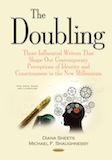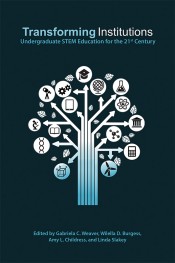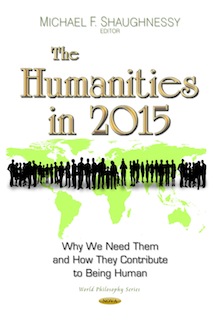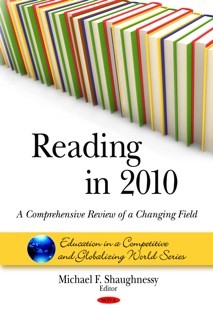What's Memoir Got to Do with It? The 2012 Presidential Election: Fiction Versus Reality, Part 2, Romney
Copyright © 2012 by Diana E. Sheets
In the Romney narrative, a commitment to maintaining America’s preeminence powers the engine of American prosperity. From his perspective, a president’s job is to keep American strong. If you succeed in this, everything else follows. Consequently, his narrative is driven not by a personal story but by a moral commitment to “reboot” the American economy. Prosperity will put Americans back to work. It will give us the economic and social capital to exert our vision for democracy throughout the world. This is the central message of No Apology: The Case for American Greatness (St. Martin’s Press, 2010, Kindle Edition). As such, it is neither an autobiographical story nor a series of policy initiatives, but rather a presentation of a worldview intended to safeguard our interests in order that America and freedom thrive.
The danger today, as Romney points out, is that “we have become so accustomed to the benefits of America’s greatness that we cannot imagine any significant disruption of what we have known” (No Apology, “Intro.,” 87-100). The implication is clear: America’s position as a great power is in peril. Romney mentions David S. Landes’s The Wealth and Poverty of Nations: Why Some Are So Rich and Some So Poor, which provides historical case studies of how nations rise and fall. At the heart of that success or failure is the cultural capital of a nation (No Apology, Chap. 2, 835-49; Chap. 10, 5141-66). The values that define a nation determine its cultural capital. Consequently, Landes argues, “If we learn anything from the history of economic development, it is that culture makes all the difference. . . . What counts is work, thrift, honesty, patience, tenacity,” adding, “no empowerment is so effective as self-empowerment” (W. W. Norton & Company, 1999, 516, 523).
In No Apology, Romney emphasizes that the cultural capital of a nation is evidenced in choices.
If citizens in a democracy foster short-term self-interest rather than promoting the long-term interests of the nation . . . there is little likelihood that they will vote for visionary, transformative leaders who advocate difficult change and sacrifice. When popular opinion places self above nation and the present above the future, nations slide from power to weakness. . . . National declines also may be attributable in part to the failures of independent opinion leaders . . . to say what needed to be heard. (Chap. 2, 915-28)
In summary, the decisions we make reflect our character. Our character determines our values and behaviors, which in the case of a nation creates the basis for our social capital. When America is productive, this social capital empowers our people, our families, and our institutions, thereby ensuring our success.
Woven throughout No Apology is an examination of what is needed to perpetuate American greatness. Romney’s book is driven by a historical analysis of what we have been as a nation and what we must be now and in the near future to ensure our continued success. Undergirding his vision of American exceptionalism is a data-driven perspective of how to reposition our resources and human capital to utilize the dynamic of capitalism to fuel our continuing prosperity rather than igniting our misery. Borrowing from the economist Joseph Schumpeter, Romney suggests that in this current economic downturn we must harness the forces of “Creative Destruction” to reinvent American ingenuity.
To accomplish this, Romney suggests, we must foster a vibrant economy, a robust military, and a people who are “free and strong” (No Apology, “Epilogue,” 5835-49). He provides a summary of sixty-four recommendations that provide the basis for accomplishing these aims (“Epilogue,” 5850-5957). But for most Americans the gist of Romney’s vision can be distilled down to his five-part economic plan for “a stronger middle class” available on his website (http://www.mittromney.com/jobsplan).
At the heart of the program is a commitment to creating a climate highly favorable to businesses so that companies will have strong incentives for profitability here at home, thereby encouraging significantly greater hiring while simultaneously driving technological innovation. Romney’s objective is to “create 12 million jobs during his first term” (click on the “Jobs Plan Introduction”). One key initiative calls for establishing energy independence by 2020. Romney also seeks to develop superior educational and technological training (“Jobs Plan Introduction”). He intends to provide incentives to attract “the best and the brightest from around the world” (click on “One Pager”).
It is hoped that a Romney administration will revive and succeed in passing the STEM bill introduced by Republicans in the House of Representatives, which was recently defeated by Democrats. This proposed legislation would grant citizenship annually to 55,000 foreign students graduating with advanced degrees in science, technology, engineering, and math from research universities here in the United States (see Russ Harrison, “STEM Visa Bill Defeated in House,” ieee-usa today’s engineer, October, 2012, http://www.todaysengineer.org/2012/Oct/STEM-visa-bill.asp).
Romney’s five-part economic plan is committed to “trade that works.” This includes reasserting fair trade practices, opening up new global markets, and developing stronger ties with Latin America. In a Romney administration, federal spending would be significantly reduced by means of consolidation and strategic cuts, all the while championing opportunities for small businesses. Romney would replace Obamacare with genuine health-care reform (click on “One Pager”).
Of course, the devil is in the policy details, their implementation, and how the economy responds to these initiatives. Nevertheless, a glance at the economic statistics from the Obama administration suggests our dismal situation right now. Almost 1 in 6 Americans live in poverty, statistically unchanged from the previous year (AP, “Census Bureau: Poverty rate remains at 15 percent,” September 12, 2012, http://www.cbsnews.com/8301-500395_162-57511216/census-bureau-poverty-rate-remains-at-15-percent, Michael A. Fletcher, “Nearly one in six in poverty in the U.S.; children hit hard, Census says,” September 13, 2011, The Washington Post, http://www.washingtonpost.com/business/economy/us-poverty-rate-hits-52-year-high-at-151-percent/2011/09/13/gIQApnMePK_story.html). There are 46.7 million Americans on food-stamps, which has caused governmental expenditure in this area to double over the past four years (Alan Bjerga, “Food-Stamp Use Climbs to Record, Reviving Campaign Issue,” Bloomberg, September 4, 2012, http://www.bloomberg.com/news/2012-09-04/food-stamp-use-climbed-to-record-46-7-million-in-june-u-s-says.html), and 23 million Americans are searching for full-time work (Joseph E. Stiglitz, The Economic Crisis: “The Book of Jobs,” Vanity Fair, January 2012, http://www.vanityfair.com/politics/2012/01/stiglitz-depression-201201). Child poverty is nearly 22% (United States Census Bureau, Newsroom, “Income, Poverty and Health Insurance Coverage in the United States: 2011,” September 12, 2012, www.census.gov/newsroom/releases/archives/income_wealth/cb12-172.html), and we’ve added $5 trillion in new debt since the Obama administration took office in January, 2009 (Glenn Kessler, “Is Obama responsible for a $5 trillion increase in the debt?”, The Washington Post, May 16, 2012, http://www.washingtonpost.com/blogs/fact-checker/post/is-obama-responsible-for-a-5-trillion-increase-in-the-debt/2012/05/15/gIQACA0QSU_blog.html).
Nevertheless, for many Americans, the decision for whom to vote rests less on a litany of policy prescriptions—inspired or not—and the difficulties of the current economy than a subliminal response to the perceived character of the candidate and his narrative (Drew Westen, The Political Brain: The Role of Emotion in Deciding the fate of the Nation, PublicAffairs, 2007, ix-xv). Therefore, let’s consider Romney’s story from a different vantage point.
At the heart of Mitt Romney’s ethic are the words of his father, George Romney: “The pursuit of the difficult makes men strong” (No Apology, Chap. 1, 120-30). This perspective on faith, perseverance, and courage in the face of adversity is emblazoned in the narrative of the five Romney men who have played a critical role in the history of Mormonism and whose portraits grace the foyer of Mitt Romney’s home in Belmont Massachusetts (respectively, great-great-grandfather Miles A. Romney, great-grandfather Miles P. Romney, grandfather Gaskell Romney, father George Romney, and Mitt Romney himself). The story begins when Miles A. Romney and his family emigrated from a village near Liverpool, England to Nauvoo, Illinois. Miles became one of the early disciples of a uniquely American faith, otherwise known as The Church of Jesus Christ of Latter-day Saints (Michael Kranish and Scott Helman, The Real Romney, HarperCollins Publishers, Kindle Edition, Chap. 2, 612-88).
“The pursuit of the difficult makes men strong” is exhibited in the life of Miles P. Romney. Following the instruction of Brigham Young to take multiple wives and build new Mormon settlements, he moved from Salt Lake City to St. George, Utah and subsequently to St. Johns, Arizona before fleeing to Mexico to escape federal prosecution for polygamy (The Real Romney, Chapter 2, 638-900). “The pursuit of the difficult makes men strong” is shown in the life of his son Gaskell Romney, who traveled to Salt Lake City for his education. He returned to Mexico and married just one woman. He built a prosperous life there before threats by Mexicans forced him to flee with his family back to the United States, settling first in California, then Idaho, and later Utah. Gaskell lost everything during the Great Depression, but worked hard to rebuild his life (The Real Romney, Chap. 2, 861-966).
“The pursuit of the difficult makes men strong” is again witnessed in the life of George Romney, Mitt’s father. George was born in Mexico and spent his first five years there before the family fled to the United States (No Apology, Chap. 2, 912-26). He eventually became head of American Motors Corporation and served as Governor of Michigan. He ran unsuccessfully as the moderate Republican nominee for president first against Barry Goldwater in 1964 and, later, against Richard Nixon in 1968 before serving under Nixon as Secretary of Housing and Urban Development.
The maxim—“The pursuit of the difficult makes men strong”—likewise applies to Mitt Romney. He obtained his MBA and law degrees from Harvard, worked for Boston Consulting Group, and, subsequently, at Bain & Company. Romney later cofounded Bain Capital, a private equity investment firm that eventually became one of the most successful in the nation. He applied his managerial acumen as a “turnaround expert” to return Bain & Company to profitability. A few years later he revamped and reorganized the 2002 Winter Olympics in Utah, thereby ensuring its success. While Romney served as Governor of Massachusetts, he introduced comprehensive health care and significantly reduced the state’s “annual rate of debt growth” (Josh Hicks, “Is Romney’s Massachusetts record really as bad as Obama says?” The Washington Post, June 14, 2012, http://www.washingtonpost.com/blogs/fact-checker/post/is-romneys-massachusetts-record-really-as-bad-as-obama-says/2012/06/13/gJQAjVqSaV_blog.html). Now, he hopes to be elected our next president.
For the sake of argument, let’s accept Simon Critchley’s proposition, borrowing from Harold Bloom’s book The American Religion: The Emergence of the Post-Christian Nation (Simon & Schuster, 1992), that Mormonism is the most quintessentially American religion, although he differs with Bloom on the extent to which Mormonism can properly be characterized as “post-Christian.” For as Article 1 of the Articles of Faith explicitly states, Mormons believes in God, the Father, and in Jesus Christ, his son, as well as the Holy Ghost, all explicitly Christian doctrines. However Mormonism is post-Christian, Critchley suggests, just “as Islam is post-Christian” in having been conceived after the birth of Christianity (http://opinionator.blogs.nytimes.com/2012/09/16/why-i-love-mormonism/).
The Mormon faith was born during in the Second Great Awakening (1790-1840s), a religious revival movement that was evangelical and, essentially, Protestant. Believers sought to eradicate their sins and those of the community in anticipation of the second coming of Jesus Christ. However, Mormonism, rather than a sect or a denomination of established Protestantism, might better be characterized as a reinterpretation of Christianity. “The native inhabitants of the New World,” Critchley suggests, are seen as the “ancient descendants of inhabitants of the Old World, the scattered tribes of Israel” (http://opinionator.blogs.nytimes.com/2012/09/16/why-i-love-mormonism/). As Article 10 of the Mormon Articles of Faith makes clear, “Zion (the New Jerusalem) will be built upon the American continent. . . .” (http://www.lds.org/scriptures/pgp/a-of-f/1.10?lang=eng). Thus, America is designated as the “Promised Land,” where “a resurrected Jesus appeared to restore the gospel and where he will come again” (Jon Meacham, “The Mormon Identity,” Time, Vol. 180, No. 15, October 8, 2012, p. 30).
Mormons believe that God and Jesus are separate corporeal beings. Each became divine as a consequence of his righteous life. And so it may conceivably be for any Mormon man who is observant and lives a moral life. Thus, Godliness is achievable through a lifetime of moral deeds, actions that are characterized by virtuous observance and self-discipline, as well as a conscious exercise of free will. For Mormons, the banishment of Adam and Eve from the Garden of Eden, rather than representing humankind’s downfall, heralds the beginning of human agency and with it the possibility of redemption.
This religious faith has been persecuted as far back as 1830. For Mitt Romney and his ancestors, as Meacham has shown, this has meant “exile and redemption, of blessing and punishment and, perhaps above all, of struggle and endurance amid trial and tribulation” (30). Not for nothing did Mitt Romney in a recent interview with David Gregory on NBC’s “Meet the Press” suggest “I’m convinced that my background, and my heritage and my faith have made me the person I am. . . .” (Brad Knickerbocker, “Mitt Romney: ‘My heritage and my faith have made me the person I am,’” The Christian Science Monitor, September 9, 2012, http://www.csmonitor.com/USA/Elections/President/2012/0909/Mitt-Romney-My-heritage-and-my-faith-have-made-me-the-person-I-am ). Romney’s beliefs have led him to a life of “swimming against the tide” since his religious faith did not allow him “the luxury of being doctrinaire or absolute” (The Real Romney, Chap. 12, 5823-37).
The cause of American greatness is foundational to Mitt Romney’s beliefs. It is informed by both his Mormon faith and his political worldview, which embraces American exceptionalism (No Apology, Chap. 1, 667-706; Chap. 10, 5126-53). Romney’s personal life is centered on “faith and firmly grounded in family” (The Real Romney, “Prologue,” 106-119). His desire to restore America’s greatness represents both a religious quest and a political imperative. Romney’s vision for our nation is a quintessentially American story, one that began with our founders and continues today. The fact that he is determined to rebuild our core institutions in order to safeguard our values and opportunities is a testament to his character and his commitment to “the American Dream” (No Apology, “Intro.,” 96-120; Chap. 1, 211-223; 573-600).
From Mitt Romney’s perspective, and indeed that of Republicans, America today is in the fight for her life. The choices we will make when we vote this November could determine not just our domestic success or failure but also our survival and perseverance as a global superpower. Many conservatives believe that if Romney is not elected president, America will become a fundamentally different society, one based on postmodern relativism steeped in identity politics and “social justice,” rather than a spiritual nation that celebrates truth, self-reliance, and personal initiative. This foundational transformation in our national character would ensure the failure of our “cultural capital.”
In truth, we’ve been living the “culture wars” since the late 1960s (see my interview with Michael F. Shaughnessy in EducationViews.org published on September 4, 2012, http://educationviews.org/an-interview-with-diana-sheets-who-is-right-and-what-is-left/). Should Obama be reelected in 2012, many Americans fear we would reach that critical point where our foundational values would have eroded so drastically that we would not have the economic, social, and political willpower necessary to overcome this seismic rupture. Our decline would resemble Britain’s circumstances at the beginning of the Twentieth Century, although our transformation from superpower to struggling nation would be swift. With a supersaturated commitment to “social justice” augmented by the full weight of institutional governance, we would drown in debt, having neither the entrepreneurial initiative nor the financial might to empower our recovery. As a nation and a people our global influence would diminish, fulfilling Fareed Zakaria’s prophesy of “the rise of the rest” foretold in his book The Post-American World (W. W. Norton & Company, 2008).
In that diminished state, we would no longer be able to influence the course of world history. Our reduced economic circumstances would ensure our military weakness, which would further curtail our opportunities, the outcome of which would greatly accelerate poverty in America. Not only would China own our debt, it would, in effect, own us. With financial occupation would come eventual physical occupation by China or some another global power. That occupation would result in our loss of freedom. There would be nuclear proliferation and the growth of rogue nations and/or peoples whose violent, irresponsible acts would increase the menace of terrorism and foster widespread global banditry. Chaos would ensure. Our 236-year experiment in American liberty would come to an end.
It is for this reason that Romney has written No Apology: The Case for American Greatness. It is why he begins his book with a quote by Dwight D. Eisenhower, “We must be ready to dare all for our country. For history does not long entrust the care of freedom to the weak or the timid” (38-44). It is the reason Chapter 1 is entitled “The Pursuit of the Difficult.” It is why Chapter 2 is named “Why Nations Decline” and is concerned so prominently with that issue. And it is the reason Chapter 3, “The Pursuit of Power,” quotes historian Donald Kagan that peace is preserved by “the preponderant power and of the will to accept the burdens and responsibilities required to achieve that purpose” (Chap. 3, 1010-24).
How does Romney’s vision contrast with Obama’s? Dinesh D’Souza argues in The Roots of Obama’s Rage (Regnery, 2011, Kindle Edition) and speculatively portrays in his film “2016: Obama’s America” that President Obama’s postmodern/postcolonial (PoMo/PoCo) perspective dominates his presidential policies. Obama’s worldview not only rejects the very concept of American exceptionalism, it actively seeks post-national agendas in order to strengthen post-colonial interests at the expense of America’s strategic goals (Chap. 1, 191-223; Chap. 3, 504-14).
Indeed, it is the crux of D’Souza’s argument that Obama’s intent is to fulfill the postcolonial dreams of his father. We need look no further than the title of Obama’s memoir, Dreams from My Father. And lest we forget the significance, Obama writes in his book “It was into my father’s image, the black man, son of Africa, that I’d packed all the attributes I sought in myself” (D’Souza, Chap. 2, 355-66, Dreams from My Father, Three River Press, 1995/2005, xvi, 220). Even if we acknowledge David Maraniss’s assessment that Obama barely knew his father and for many years struggled with how he might define his black identity (David Maraniss, Barack Obama: The Story, Simon & Schuster, Kindle Edition, “Intro.,” 237-60; Chap. 14, 6946-83; Chap. 17, 9176-98), what matters in the context of Obama’s memoir and his political maturation is the overwhelming prevalence of his PoMo/PoCo outlook in shaping how he defines himself and his administration’s emphasis on post-American global policy.
Thus in 2009 at a European press conference for the G-20, the twenty most influential economic countries, when Obama was asked if he believed in American exceptionalism, he responded in a relativistic PoMo/PoCo vein, “I believe in American exceptionalism, just as I suspect that the Brits believe in British exceptionalism, and the Greeks believe in Greek exceptionalism (Monica Crowley, “American exceptionalism . . . ,” The Washington Times, July 1, 2009, http://www.washingtontimes.com/news/2009/jul/1/american-exceptionalism/?page=all). But Obama’s response, D’Souza suggests, was more than just misguided cultural relativism. It was—and remains—indicative of an antagonistic postcolonial perspective infused with neo-Marxist influences shaped by writers such as Chinua Achebe, Frantz Fanon, Edward Said, and Wolf Soyinka (Chap. 1, 191-213).
Indeed, this perspective may be credited with the catastrophic policy failings of the Obama administration, most notably in the Middle East and Northern Africa. This outlook is exemplified in the administration’s misguided embrace of the Arab Spring and its tacit support of Islamic fundamentalism, under the guise of democracy, which forced Hosni Mubarak to step down as ruler of Egypt and resulted in the rise to power of the Muslim Brotherhood. It is shown in the tragic failure of security in Libya that led to the death of Ambassador Chris Stevens and three other Americans. It is exhibited in the Obama administration’s inability thus far to contain Iran’s ambition to develop nuclear weapons. It is evident in how this Democratic government has isolated Israel amid the rising tide of Islamic extremism. And the list of foreign policy failings in the Middle East and North Africa accumulate: the challenges of stabilizing Iraq, the weakness underlying the Obama administration’s handling of Afghanistan, not to mention the war in Syria and the turmoil occurring in Tunisia, Yemen, and the Sudan.
These ruinous lapses in domestic and foreign policies represent failed judgments by the Obama administration. Unless they are reversed they will have devastating consequences for America and her allies. Obama’s catastrophic policies are the byproduct of a post-colonial worldview that is post-American. They reflect a deficit in American values. They fundamentally undermine the importance of self-reliance. They grossly minimize the value in fostering intact, healthy families who nurture opportunities for future generations of Americans, which in turn contributes to the wellbeing of our communities. They overwhelmingly minimize the importance of maintaining a commitment to excellence in all that we do. Finally, these deficiencies in policy and worldview significantly overlook the importance of supporting our businesses so that they remain globally competitive. To succeed, America must nurture a climate in which companies can thrive and job prospects multiply. Our prosperity and wellbeing as a nation and a people are crucially tied to our economic success. Without wealth we have no leverage, and without leverage we quickly become powerless.
The remedy, it must be emphasized, cannot be found in the sickness. America must return to the values that defined America before the countercultural revolution of the late 1960s. This necessitates a repudiation of Obama and the Democratic Party as it is presently constituted. It demands a return to the principles of American exceptionalism that formed our national character. As a people we must refuse to define ourselves by the divisive influences of race, class, and gender. Instead, we must seek common American values nurtured by a desire for excellence and our foundational virtues.
These virtues were demonstrated in Mitt Romney during the historic debates with Barack Obama. Mitt Romney has the judgment and commitment to restore America and her people to greatness. In the words of his father, “The pursuit of the difficult makes men strong.” The task before us poses significant challenges. Nevertheless, our ability to persevere will strengthen our character and our resolve, thereby opening up pathways for our eventual success. Romney will enable us to take these necessary steps to ensure the renewal of the American Dream. Will Obama? The answer lies in his shriveled and torn Dreams from My Father that lies before you. The choice is yours. Vote November 6th.









